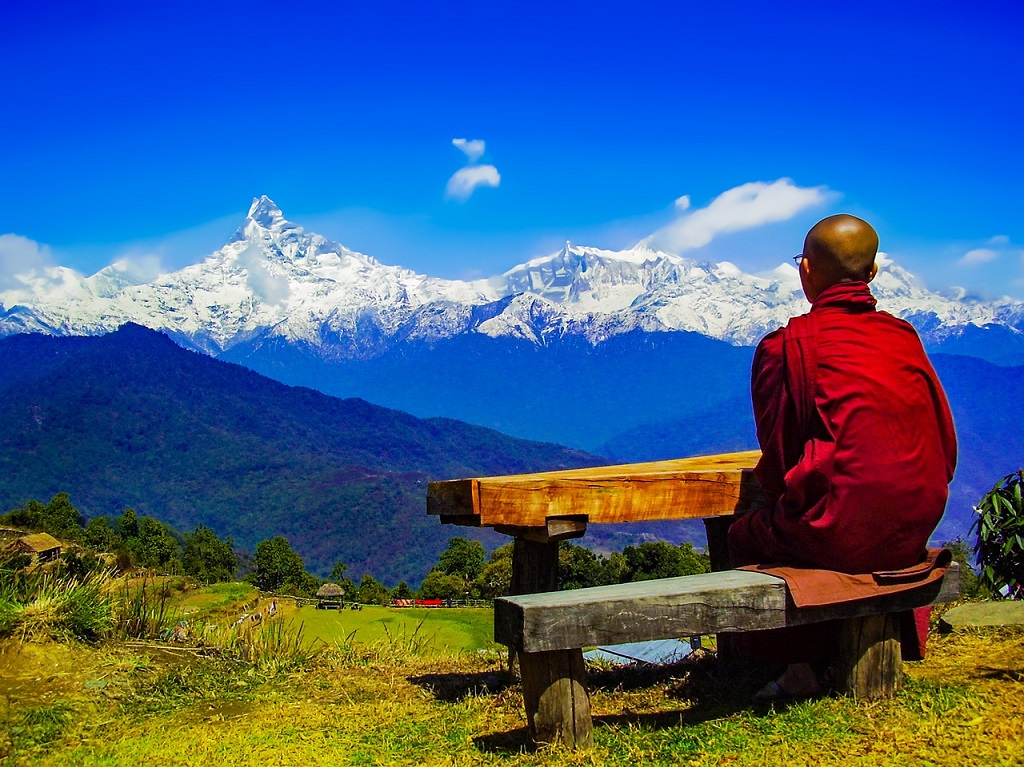Benefits of Silent Retreats
Silence Retreat — When asked to many people — what picture comes to mind when you hear the words “silent retreat”? Some of the most common answers we received were a yogi in an ashram, a Buddhist monk in a Tibetan monastery, a hermit sitting on a mountaintop with his eyes closed, a person walking alone on a remote beach.
I believe the reason why these images topped the list has to do with how silence has been professed in the past.
For thousands of years being in silence was considered to be reserved for those who lived a secluded life in remote cloisters and practiced silence and solitude. It was for them who have taken a vow of detachment and have parted ways from society’s common beliefs and ways of living. Those who sought union with heavenly powers, the universe and their spiritual selves were the ones who sought silence. Simply put, it was viewed as an alternative to the mainstream living, which very few opted.
Fast forward today, being bombarded with a constant stream of noise, information, updates, day-to-day life, and work demands the desire to have some precious moments in silence has become a lot more of a compulsory need of today’s mainstream.
In the past several years, an increasing amount of people are going silent retreats to spend time in silence to rest, recharge, connect and align their mind, body, and soul. Often these silent retreats involve some dedicated sessions of yoga and meditation while the rest of the time individuals simply spend time in silence and solitude in a place away from cities and populations.
In fact, silent retreat was cited as one of the top eight wellness trends at Global Wellness Summit.
It is important to recognize that despite practicing silence being part of religions including Hinduism, Buddhism, Sufism and Catholic, one needs not have to be a religious person to embrace and benefit from the power and depth of silence.
Here are six benefits of silent retreats and why you should consider them.
1. Redirects energy inwards
With considerable less energy used for external communication, silent retreats redirect our energy for inward communication. When we are outwardly silent, the conserved energy is used for tuning within, which often usually goes unnoticed.
With an abundance of energy directed inwards, being in an environment with the minimalist of distractions and essentially nowhere to run, silent retreats force us to acknowledge and process our most uncomfortable thoughts and feelings. As we look inwardly, clarity in thoughts starts to emerge which is a crucial element required to live a happy and fulfilling life.
2. Offers new perspective
More than ever before nowadays it is common to see individuals taking sabbaticals to reassess their current life and future. I am sure you have heard of someone who has made a major shift in after coming back from a soul-searching adventure.
Silent retreats can often act as a tremendous source in gaining a new perspective on life. Being in silence and away from daily busyness removes the constant influence of the external world. With free to be ourselves without fearing outside world judgment allows us to discover what truly brings joy and fulfillment to our life.
3. Silences the “Monkey Brain”
Experiencing silence and solitude at first triggers, a part of our brain called “monkey brain.” An area of the brain which in the absence of external stimulus swings from thoughts to thoughts like a monkey jumping from one branch to another.
Silent retreat’s experience at the beginning is quite chaotic, where our thoughts bounce from one to another. In reality, there is no escaping from this initial experience however, our monkey brain only has a limited lifespan. Depending on the individual and their level of experience with silence and solitude, it can take anywhere from one to three days for our thoughts to settle and rest after which a deep sense of calmness appears within us. In this state, many of us have a very high level of spiritual, emotional and physical awareness.
4. Cures boredom
With the world today filled with endless distractions, most of us always need something to keep ourselves engaged or else we cry of boredom. Many of us today have no clue of what it’s like to simply do nothing and be with our thoughts.
A recent research has revealed a startling result that “[many] people prefer electric shocks over being alone with their own thoughts.”
Very often at the beginning of silent retreats, many people are hit struck by this feeling of acute boredom. With that said, as time passes and as they persist to stay in silence and spend time with themselves the feeling of boredom slowly starts to dissipate. Instead of getting bored, they begin to enjoy their own company. They become curious about their being, values, and purpose.
Being able to be with our thoughts and feelings is a crucial life skill, which helps us to uncover our deep emotional states — one of the most fundamental building blocks of the self-healing process. It is this awareness that often sparks the motivation to go within and find the root cause of our sufferings. Only then, we can resolve and take action to replace our negative emotions with positive ones.
5. Breeds and enriches compassion
On silence retreats, much of the time is spent in silence and solitude. As we spend time with ourselves, we start to observe our inner landscape has both peaks and troughs.
This simple recognition that we are not perfect and acknowledging our shortcomings breeds an unmatched power of compassion within us. It increases our ability to connect on a deeper and spiritual level with others and ourselves as well. We seek to understand instead of judging.
6. Empowers practice of mindfulness and meditation
Despite being fully aware of spiritual, emotional and scientifically proven health benefits of practicing mindfulness and meditation, the vast majority of us don’t practice them. The most cited reason behind this shortcoming is that “I want to practice mindfulness and meditation but my life is too busy with demands that need my immediate attention.”
Away from the rush of daily busyness of life, the time spent in silent retreats creates space for us to observe what’s happening in the current moment and become mindful. Additionally, most of the silent retreats involve mediation practice. It’s relatively easier to learn and/or strengthen meditation practice away from daily crowd and noise. These focused periods of mindfulness and meditation can help us uncover our innately joyful nature and balance, which through practice and sincere efforts can be sustained after the silent retreat is over.
To conclude, silent retreats not only offer a much-needed break from the never-ending stream of noise and daily busyness, but it also offers something even more significant — the possibility to enter a raised paradigm of consciousness and dive into our inner-world to discover our real selves and live a long-lasting happy and fulfilled life.
Namaste.



